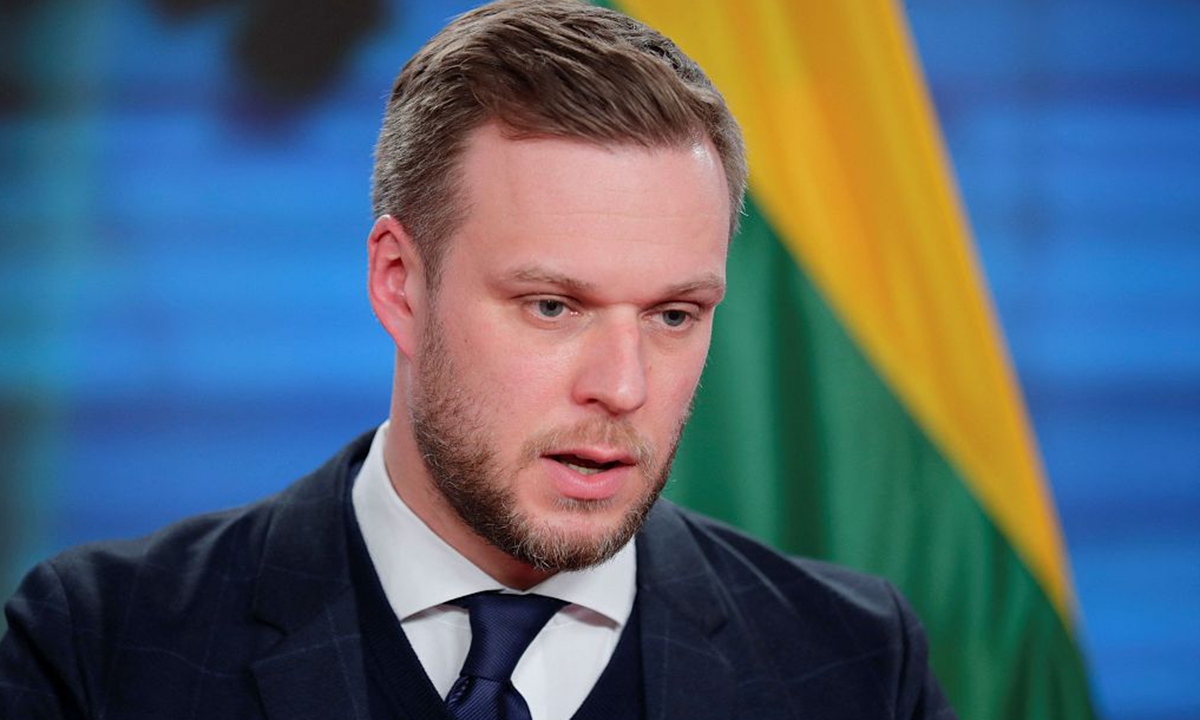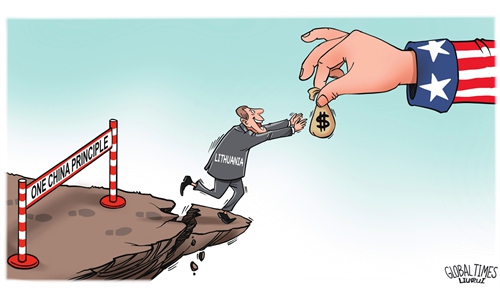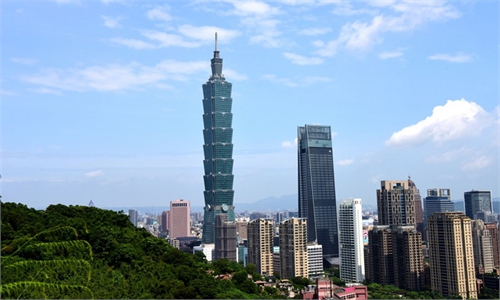For three Baltic countries, it's their fate to rely on one side and attack another

Lithuanian Foreign Minister Gabrielius Landsbergis file photo:VCG
A delegation of parliamentarians from the three Baltic countries - Estonia, Latvia and Lithuania - landed on the Taiwan island Sunday morning to attend the 2021 Open Parliament Forum on December 2-3. They may wish to boost the morale for Taiwan authorities. But that's all they are capable of. What they can bring to the island, other than their own national interests, via the tour, is no more than some "pleasant" political rhetoric and pie in the sky.Some people wonder why the Baltic countries have come to where they are today when it comes to their anti-China stance. Multiple reasons can be listed.
To begin with, opposition lawmakers in these countries had started to hype up anti-China issues when they were not in power. After a change of government, it was possible for those forces to carry out their anti-China stances in practice.
Take Matas Maldeikis, leader of the Lithuanian parliament's Taiwan Friendship Group, who leads the Lithuanian delegation to the island this time. He comes from the Homeland Union - Lithuanian Christian Democrats, also known simply as the Conservatives, which is a centre-right political party. The party was previously in opposition, but is now part of the ruling coalition government.
Second, the growing negative impression about China among the Baltic countries is a result of the increasingly heated debate over a new cold war.
Since Joe Biden assumed office, he has been drawing like-minded countries over to US side, making the world divided over the so-called democratic and autocratic camps, and planning the Summit for Democracy, with China and Russia as the obvious targets, while promoting the so-called values of his allies.
More importantly, the Baltic countries are feeling insecure amid changing geopolitics. These countries were under the rule Soviet Union from the end of World War II and regained independence in 1991. Until today, they still believe that the most direct "threat" they confront comes from Russia. However, starting just from their relations with Russia, the three countries tend to believe that they could do little to make any breakthrough to change their situation, not to mention letting the US and other European countries to attach importance to their sense of insecurity.
So their gaze settled on China. The Baltic countries witness that China has become a major concern of the US. They thus believe that hyping the "China threat" and the Taiwan question can make the US see them and their Russia-related challenges as important. So they could then continue relying on the US for security.
Jeopardizing ties with China will definitely come with losses vis-à-vis the three Baltic countries' practical interests. But they are calculating it from another angle. They believe they are helping the US in forging an anti-China front, which will contain China's development, and avoid the world being ruled by China one day. And they are stuck with the idea that doing so, in the end, will bring them long-term benefits. They may even wish that if they could boost economic ties with the US and the Taiwan island, if companies like Taiwan Semiconductor Manufacturing Company could invest in the Baltic countries, they will harvest fresh gains in the future.
Will their wish be fulfilled? Unfortunately for them, there are too many uncertainties. The economic cooperation between China and the Baltic countries cannot be replaced by anything the Taiwan island can offer any time soon. The Taiwan authorities may persuade them with beautiful promises, but the move will at most be equivalent to drawing a cake and calling it a dinner.
To what extent can the Baltic countries help the US secure an absolute competitive edge over China, or help Washington defeat Beijing? The uncertainty here is even greater. No matter how high the grade the three countries would give themselves, they will always play no more than a partial and non-decisive role in the US strategic chessboard.
How should small countries deal with major power games? There are some positive role models in the world. Setting aside Singapore, which has a very different history and culture than the Baltic countries, there are other good examples near the Baltic region. Finland kept a good balance between the US and Russia during the Cold War. And Switzerland recently expressed its willingness to play the role of "bridge builder" in international affairs.
Unfortunately, it will be hard for the Baltic countries to do the same. Their own experiences have resulted in their narrow-minded international vision. For them, it seems their destiny can only be guaranteed by taking sides: relying on one power while attacking another.
Lithuanian Foreign Minister Gabrielius Landsbergis said on Friday that "[China's] reaction is temporary and some normalization will take place little by little," adding he hopes that relations between Vilnius and Beijing will gradually return to normal. This is self-comforting.
Lithuania has gone too far this regard. It has even piled pressure on countries which try to strike a balance between China and the US. Their pressure will gradually be vented out against Lithuania.
Landsbergis wanted to create an impression that China is a paper tiger, so China must stick to its stance firmly, make clear goals and methods to deal with Lithuania. We must prove Landsbergis' remarks are self-defeating with our actions.
China should not only make Lithuania pay the price and realize its mistakes, but also should take this as an opportunity to show the international community its firm political principles and will on the Taiwan question.
The article is compiled by a Global Times reporter based on an interview with Cui Hongjiang, director of the Department of European Studies, China Institute of International Studies. opinion@globaltimes.com.cn


